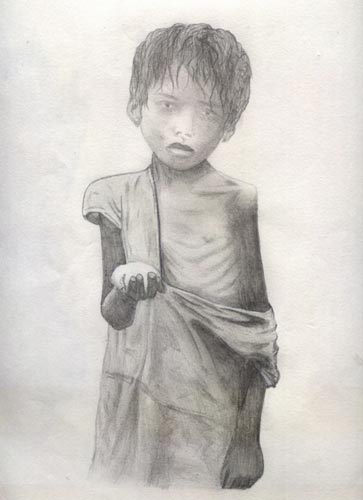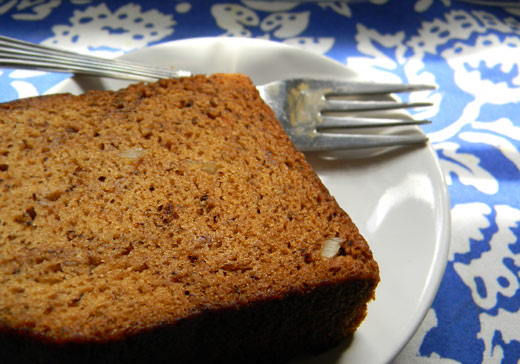“A house is not a home unless it contains food and fire for the mind
as well as the body”
Benjamin Franklin
Think food and mind comes alive with vivid images of various cuisines, fusion delicacies, lavish spreads, macro shots of tasty looking food, gourmet blogs, fine-dining, favorite restaurants, full meal thali, sinful desserts and what not.
This food explosion has opened up new vistas, experiences, indulgences and not to mention the business models. Want to make killer profits? Try education, healthcare or food. Move on entertainment, there is no business like food-business.
Thanks to affordable global travel and internet, an house wife from two-tier town in India not only procures international ingredients but also makes the tastiest zucchini bread while pairing her Asparagus quiche with Pinot Blanc. India has truly arrived on the gastronomical foodscape. We live in the era of sensory explosion where all senses have been trained to come alive when it comes to food. As food pundits predict, it is only going to get better.
After water in 2010, this year’s focus for Blog Action Day 2011 is on Food. Last year, writing on water gave me a chance to stop, think and write. It also gave me an opportunity to read about so many different viewpoints on water.
Writing about food should be the easiest thing to do for I have blogged about traditional recipes, gardening and growing your food, soul of kitchen, etc. But today, it just does not seem to flow. This time, it is not easy.
There is lot more to food than what meets the eye.
While we bloggers write/ celebrate the delights of various cuisines, share recipes, converse on calorie intake, comfort food and gourmet chefs, there is a huge world out there that goes without a few grains of rice. While one section of population frets about calorie intake and tries every rule in the book to sweat it out, the other half quenches its hunger with tap water. There is a horrible imbalance of over-fed obesity and under-nourished bellies.
We are a nation where more than 50 million metric tons of food grains rots due to storage problems while more than 600 million people suffer from malnourishment. The food for whom it is stored does not reach them. The system that is made to keep India in motion, does not work. Even the ration card system designed to help the poor eat, works against them.
To live in a country like India needs a lot of guts. Not because India is a gastronomical paradise, but for the fact that we live in midst of gut-wrenching facts of malnourishment and the misfortune that comes with it. And we chose to do nothing about it.
Here, everyday living is centered around working for and fixing one square meal for oneself and loved ones. It is not easy.
And as an icing on the calamity cake was the Planning Commission’s classification of people above and below the poverty line by an earning of Rs.32/ day which included their expenditure on food, healthcare and education. Needless to say that it is still being debated and challenged by the literate urban man and media. The poor man however oblivious of this brouhaha continues his struggle of fixing a single meal for his family.
To understand the food paradox better, please about Basavi, a tribal and what food meant to her. Be rest assured, our dilemmas will multiply.
For those Tehelka spoke to, the rickshaw-puller, farmer, waste-picker and others, bitterness came later in the conversation — after the shock (of the report) passed. The precariousness of their lives is held at bay by dignity, hard work, generosity to those even poorer, loyalty to family, resilience and faith. All to be frayed again by those who have never known what it is like to be hungry.
SOURCE: Tehelka
Here is a sample of real people, their struggles, their hunger and the lengths they goto make it meet.
While one is deeply disturbed by these contradictions, one also feels sad at the state of the Public Distribution System. India can boast of having the largest public distribution of subsidized food grains in the world. It has a network of nearly 500,000 Fair Price Shops (FPS) that distribute commodities worth more than Rs 15,000 crore (150 billion) to 160 million households. The 2005 Planning Commission report says that 57% of the PDS food grain does not reach the intended people. For every Rs 4 spent on the PDS, only Rs 1 reaches the poor. The food subsidy bill for 2006-07 for the Government of India was Rs 242 billion. 36 million tons of grain was procured that year, and 31.6 million tons was distributed through Fair Price Shops. Looking at these figures, one feels both disturbed and confused. Confused that we are doing so much but have so little to show; angry and disturbed at the enormous leakages and corruption that has seeped into this system.
SOURCE: Dr. R.Balasubramaniam
Yes, I did want to write. And write a lot about it. But words don’t flow easy. For every sentence that I want to write, I stop to think for I find myself to be responsible for creating and supporting a system so flawed that food does not go where it is needed the most. It stops at us, our super-markets, kitchens, stomachs and finally in thrash (but ofcourse it get picked up from there too).
Our country faces multi-faceted problems of hatred, violence, illness, poverty, discrimination and these can be raced back to the struggle of the stomach and soul. We now face a huge world in front of us that is under-fed, hungry, sick and in pain.
More than half of the Indian population struggles to achieve Maslow’s first level of needs. With the need for food comes the question of dignity, self respect, community, survival, hope, faith and perseverance. The hungry are actually high up on the self actualization scale, are resigned to fate.
It is just not about food. In this struggle, there are compromises to be made, conscience to be muffled, and hard pills to be swallowed. And sometimes suicide is the escape key. It somehow seems justified.
“We can no more do without spirituality than we can do without food, shelter, or clothing.”
Ernest Holmes
Sometimes I wonder what is the meaning of food availability, food security, the feeling of being sated, nourishment, etc? I don’t know anymore. How longer can we boast about traditional food systems, culture, civilisation, Ayurveda, healing with food, and nature healing when we have totally lost it. India, the land of excess and rich resources now grapples with problems of its own creation.
Isn’t our country is poor, under-nourished and sick because of people like us? Aren’t we also the reason for its malaise? We don’t ration. We load, hoard, eat, glutton, waste, indulge, and thrash, but don’t make enough effort to help the food reach where it is most wanted. Isn’t our indifference, silence, resignation, blame-shifting, to equally blamed for this food crisis? We will realise and appreciate this only after the full circle of self-destruction.
Solution to Food Crisis?
There was a time when food was holy. Food went with worship. Food was not be wasted. Food was not sinful. Food was food. We need that simplicity back.
There were principles, traditions and culture that governed and nourished body and soul. Not just Ayurveda and natural life sciences, but there was timeless and priceless wisdom that we need to dig back into.
At the risk of sounding preachy, we need to look back into the centuries of wisdom that have abandoned in pursuit of happiness and instant gratification. Like we always did, we have a choice. Either we continue to live the way we lived or chose to make a small difference. There are no mountains to move here. Few simple holistic changes to our lives.
Less is more. Less is Green.
This is not about denial or abstinence, but we will always be amazed at how well people can live with less and that our body does better with less. Moderation is the mantra.
Not for the sake of diet or dieting, we need to eat less than what we do because we are no longer those foraging cave men and women who are always on the go. We need a plate of food that just fills us.
If there is more, find those who need it. It is not difficult to find.
It is time to think what really works!
We have been conditioned enough to eat three square meals, drink enough water, and so on. It is time to question our real needs. Do you really need what you once were in need of? Do you really need to cook or stock up so much? Do you really need to follow the food pyramid? Is one big meal and two smaller meals better?
There are so many questions that an urban, literate citizen needs to ask and find answers to. More-so because, we are the major reason for this food imbalance. We can blame the Government later.
I cannot write enough. I wish to share with you an old artwork of mine that hangs in our dining area… as a reminder of how wretched we are in comparison.

Untitled – 12″x18″ – Pencil on Paper – Framed
The next time you dine out at a fancy restaurant, it is ok to eat your plate clean (even though dining etiquette suggestes leaving a bit behind) for those few morsels should remind you of the farmer whose sweat and blood went into the making of your gourmet meal.
Nothing should be wasted.
Bon appetit!















